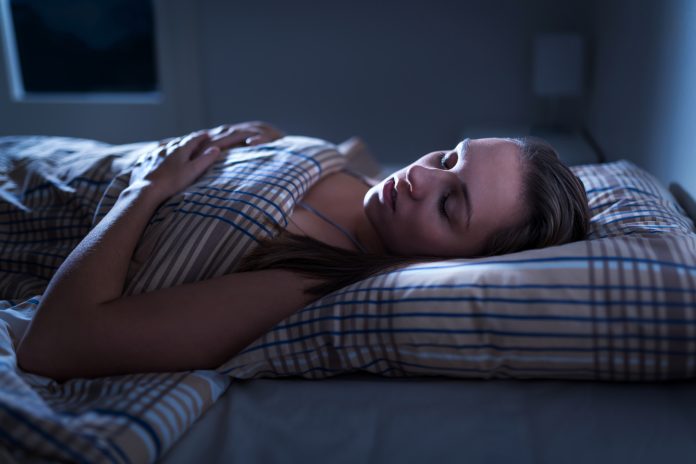To celebrate World Sleep Day, Suzy Glaskie, Functional Medicine Certified Health Coach and founder of Peppermint Wellness, offers her expertise about why we need more sleep and provides top tips on how to get it
When we think of wellness, we tend think green smoothies and intense workouts. Sleep hardly ever gets a look-in – but we ignore its importance at our peril.
Did you know that Roger Federer insists on 11 to 12 hours’ sleep at night? Federer understands that the ultimate performance enhancer is sleep. So while many of us are up till all hours catching up on admin, pootling about on Facebook or binge-watching Netflix, Federer is benefiting from the regenerative power that only sleep provides.
Sleep-deprived
In our 24/7, constantly wired culture, many of us are blithely sacrificing precious sleep without realising that it’s wrecking every aspect of our health and wellbeing. These days, more of us are sleep-deprived than not.
A straw-poll amongst your friends will no doubt reveal that nearly everyone sleeps with their smartphone inches from their head (and possibly an iPad balancing on their chest). But here’s the problem: research has shown that the screens inhibit our ability to fall asleep, with the effect being likened by some experts to that of a double-strength coffee before bedtime.
Sleep influences just about every aspect of our lives: from our productivity to our reaction time; from our weight to our decision-making; from our skin to our job; and from our mood to our relationships. It’s time to reassess our priorities and give sleep the respect it deserves. Sleep needs vary but, generally, everyone needs seven to nine hours a night for their brain and body to perform at their best. Here’s just a couple of reasons why:
- A proper night’s sleep will lower your blood pressure and reduce levels of stress hormones in your body, providing emotional stability. Lack of sleep, on the other hand, leaves us feeling irritable, moody and angry. If this is prolonged, it can lead to long-term mood disorders such as depression or anxiety. Did you know that, after just one night of skimping on sleep, you’ll experience changes in mood, headaches, and hormone imbalances?
- Sleep restriction leads to a decrease in the hormone that controls your appetite. At the same time, it increases the hormone which stimulates appetite. So if you’re sleep-deprived, you tend to feel hungrier and less sated. You’re far more likely to crave junk and, because your decision-making is also badly affected, your sleepy self is also more inclined to eat an entire packet of chocolate biscuits!
Tips to help you get better sleep
- Try a ten-minute meditation or breathing practice. (I like the Calm app which has a brilliant range of very accessible mindfulness practices you can just listen to at the swipe of your phone. You can also choose from a suite of Sleep Stories which are specifically designed to lull you to sleep.)
- Consider taking a magnesium supplement, a powerful relaxation mineral, before going to bed. Or have a hot bath and add magnesium-rich Epson Salts and a few drops of lavender oil. Applying a couple of drops of lavender oil to the soles of your feet is also a lovely way to prepare for sleep.
- Make sure your room is completely dark, free of clutter and cool (around 18 degrees). If you don’t have black-out curtains, buy yourself a sleep mask and see what a difference it makes.
- Try to choose a wake-up time you can stick to within an hour, every day of the week (even on the weekends). This really does make a difference as it supports your body’s natural rhythms.
- In the same vein, exposing your eyes to daylight in the morning (say within an hour of waking) also supports your circadian rhythm, encouraging a better night’s sleep that night.
- An hour before going to bed, switch off all electronic devices, including the TV. If you have to look at a screen, buy yourself some special amber light glasses to screen out the blue light.
- Charge your iPhone/iPad outside of your bedroom (if you’re telling yourself you need your phone to wake you up, invest in an alarm clock! At the very least, put your phone to airplane mode).
- Finish dinner at least two hours before you intend to go to bed.
- Leave a three-hour gap between exercising and lights out.
- Avoid caffeine in the afternoon/evening. Even in small doses, it’s a powerful stimulant and can stay in your system for up to 7 hours. Keep an eye on the alcohol, too: it can cause frequent and early wakening.
- Avoid sugary snacks – these will raise your blood sugar and make it harder to fall asleep.
- Try using earplugs or a white noise machine to block out disruptive sounds.
- Starting a gratitude practice is a lovely way to switch off from the stresses of the day and prepare yourself for sleep: simply keep a notebook next to your bed and write down three things that you’re grateful for from that day.











